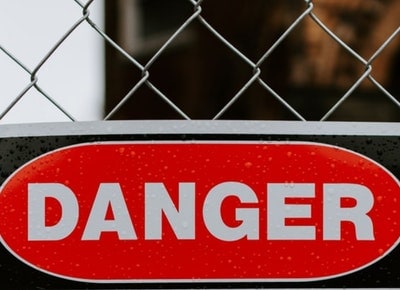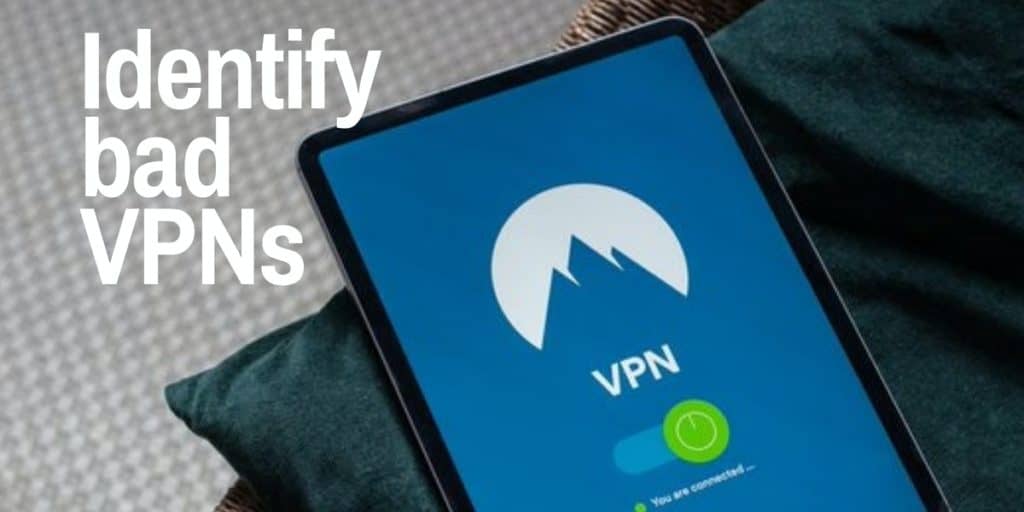 You might want to use VPNs (also known as virtual private networks) since it will offer you improved levels of security features, or it can provide you with access to great sites that might be blocked in your country.
You might want to use VPNs (also known as virtual private networks) since it will offer you improved levels of security features, or it can provide you with access to great sites that might be blocked in your country.
Regardless of the reason you are using it for, using a VPN will offer you a wide variety of options that are useful to you.
Yes, you might think that VPNs have their drawbacks, even though you might not see it as something to spend time worrying about. VPNs are quite many, but it is always a bad idea to choose the wrong VPN service – because you will unknowingly share more information than you want.
It is very important to know the signs of a bad VPN, make the right choice, and remain safe online by making the right choice.
Reasons why the VPN does not work for you
 If you are using a VPN service that is well-known, and seems to work very well for plenty of devices except yours, then the service you are using is wrong. Just because feedback about it is positive, does not mean it will work well for you.
If you are using a VPN service that is well-known, and seems to work very well for plenty of devices except yours, then the service you are using is wrong. Just because feedback about it is positive, does not mean it will work well for you.
This makes it a bad idea to simply pick a VPN because of reviews only. Before making the choice, you need to answer a few questions that relate to your internet use:
-
What are your expectations?
-
What technical requirements do you have?
-
When and where are you going to use the service?
-
Are you primarily using the VPN for work, or do you have another reason? (Such as accessing geo-blocked content or making transactions)
-
Do you need the VPN for your trips abroad, in case you are a frequent traveler?
Signs that you have picked the wrong VPN
Offers you promises that are too good to be true
 A quick examination of the best USA VPNs, for instance, will tell you that they will always brag about all the things they will have to offer their users. However, always remember that if something sounds too good to be true, then it likely is. The best VPNs might be the fastest ones in certain areas, so that might be the actual fact in some way, but not always.
A quick examination of the best USA VPNs, for instance, will tell you that they will always brag about all the things they will have to offer their users. However, always remember that if something sounds too good to be true, then it likely is. The best VPNs might be the fastest ones in certain areas, so that might be the actual fact in some way, but not always.
When you see a VPN service provider claiming that they can unblock every site they see, or it is using logos of the streaming and media services you know, and making you assume that you can access it easily when it does not actually does not do so, you will need to be careful about it.
If you see a VPN claiming that it can guard you from all kinds of threats in online spaces, or one that promises you much faster connections, avoid it as soon as you can.
It fails to change your IP address
 The main reason you are using a VPN is to feel secure, so the service should help you along by providing another IP address. Any bad VPN will fail to change your IP, and will also leak your information to the rest of the world.
The main reason you are using a VPN is to feel secure, so the service should help you along by providing another IP address. Any bad VPN will fail to change your IP, and will also leak your information to the rest of the world.
It might seem difficult to check, but it is actually easy. To see if the VPN is working well, visit the website whatismyipaddress.com and note the IP address you are using without the VPN on. When you note the IP address down, turn the VPN on and refresh the site. If you see the IP address is still the same as when the VPN is off, it is time to remove that VPN.
The details of the VPN’s ownership are scarce or vague
 Companies that have nothing to hide will give you plenty of information when it comes to explaining about them as much as possible. Sites that will provide you the service you trust will always have dedicated pages, even in the case of VPNs, which will allow you to read on basic information about them.
Companies that have nothing to hide will give you plenty of information when it comes to explaining about them as much as possible. Sites that will provide you the service you trust will always have dedicated pages, even in the case of VPNs, which will allow you to read on basic information about them.
Any VPN that you need to avoid will have no information and very little to know about them, even for the creators of the service. For instance, one red flag is seeing that they do not provide customer support, because they do not have a proper site. In addition to that, you cannot count any information they give in order to fix the problems you might experience with them.
It has red flags
 Some of the danger signs to look out for include:
Some of the danger signs to look out for include:
-
The VPN is asking you for too much information when you are signing up. The less they know about your details, the better it is for your own security.
-
Their Privacy Policy is very lousy, unclear, or too short. This is because they likely do not care much about the safety of your information, and it can even leak your actual IP when you decide to use them. When using these VPN types, you are likely to see that the protection levels are very low or non-existent, which must be a feature all VPNs should mention on their specs list.
-
The lack of a kill switch in the VPN. You always need to be in control when you are using the VPN, as well as when you do not.
-
It only has universal benefits, and does not provide any information on the protocols it supports or the countries it covers.
The rates are really cheap
 A normal VPN service can have a cost that ranges from $6 to $11 every month, though this will depend on the features that their customers are using.
A normal VPN service can have a cost that ranges from $6 to $11 every month, though this will depend on the features that their customers are using.
The red flag here is if the rate of their services is too cheap, and they are also offering a free VPN service.
Unless they are operating a promotion, where they reduce the cost of subscription for a short time, avoid these kinds of services. This is particularly true if you are seeing countless ads and the speed of connection is very slow.
Final thoughts
These signs of a bad VPN should help you avoid them at all costs. You are better off spending your money on a VPN that is worth it, instead of signing up to a shady service.
……………………………………………..
Whitepaper: How to Improve Your Account-Based Marketing https://t.co/N6AdFDNKPq
This white paper has everything you need to know about Account-Based Marketing (ABM) and will explain how personalizing your messages and content will improve your ABM results. pic.twitter.com/3Hg86yNc3B— Will Corry (@slievemore) April 17, 2020

